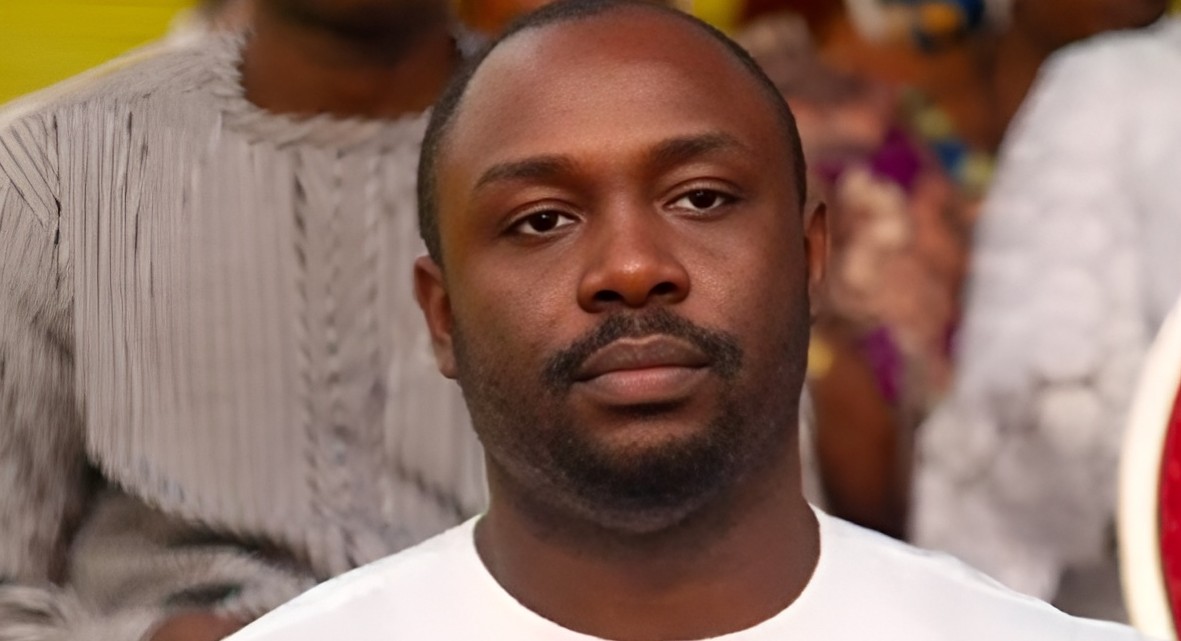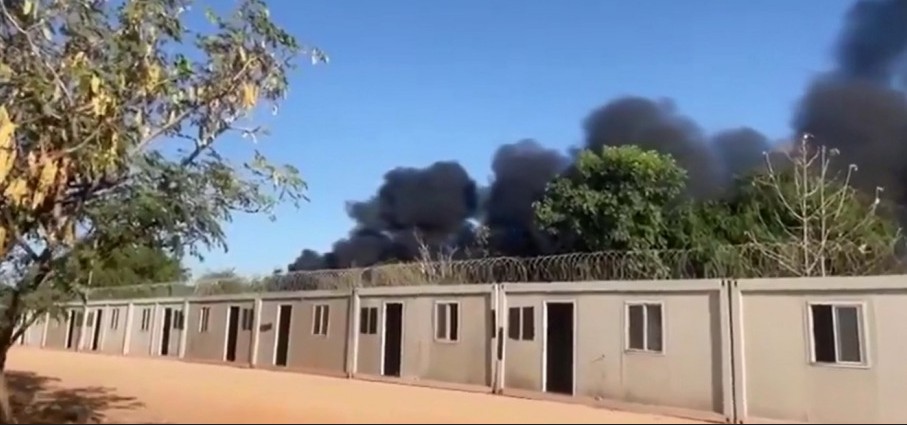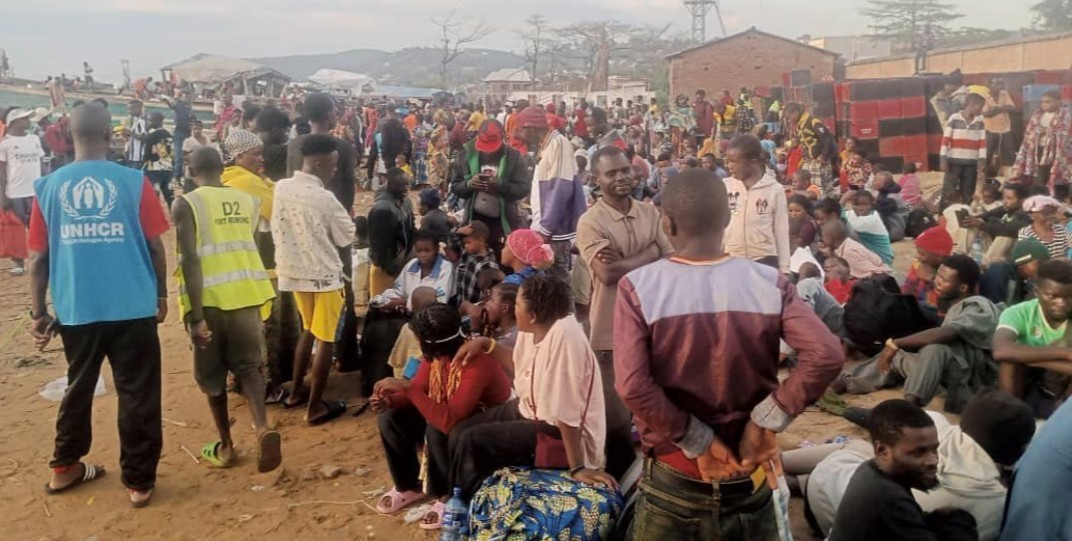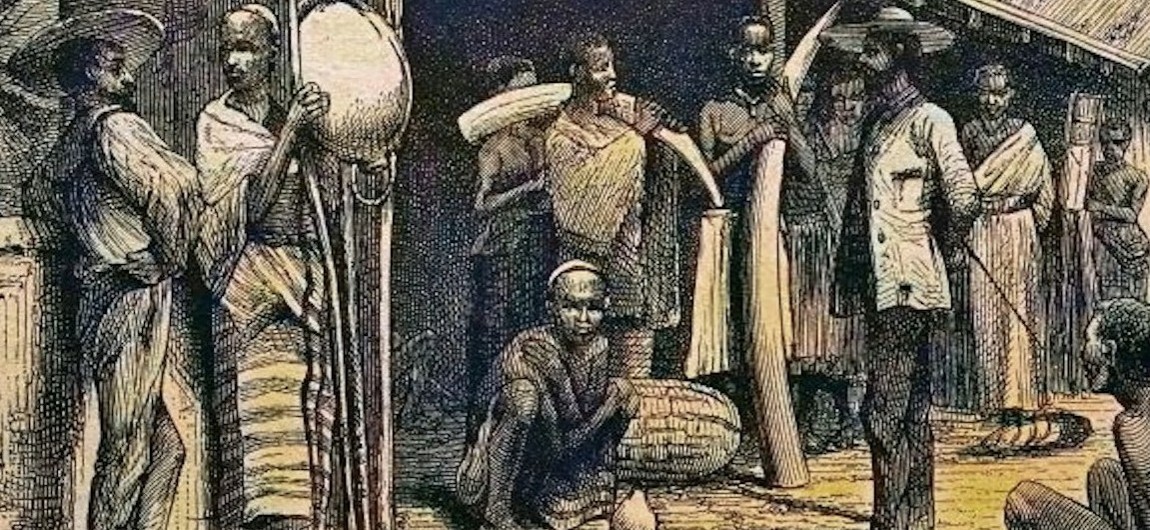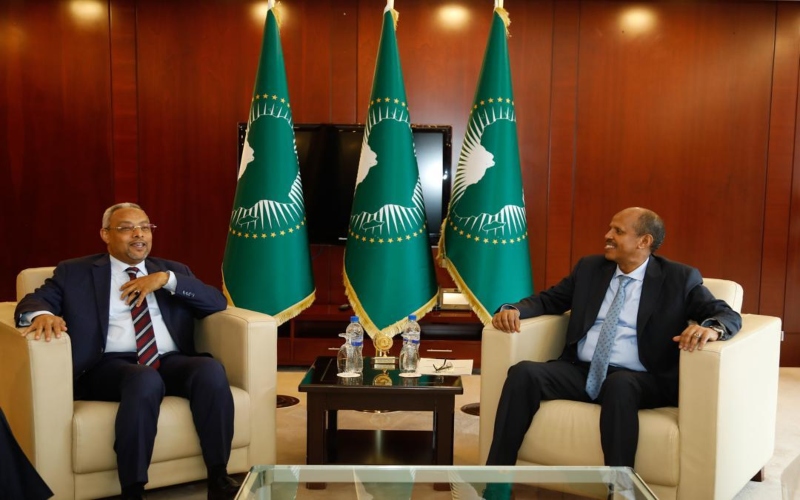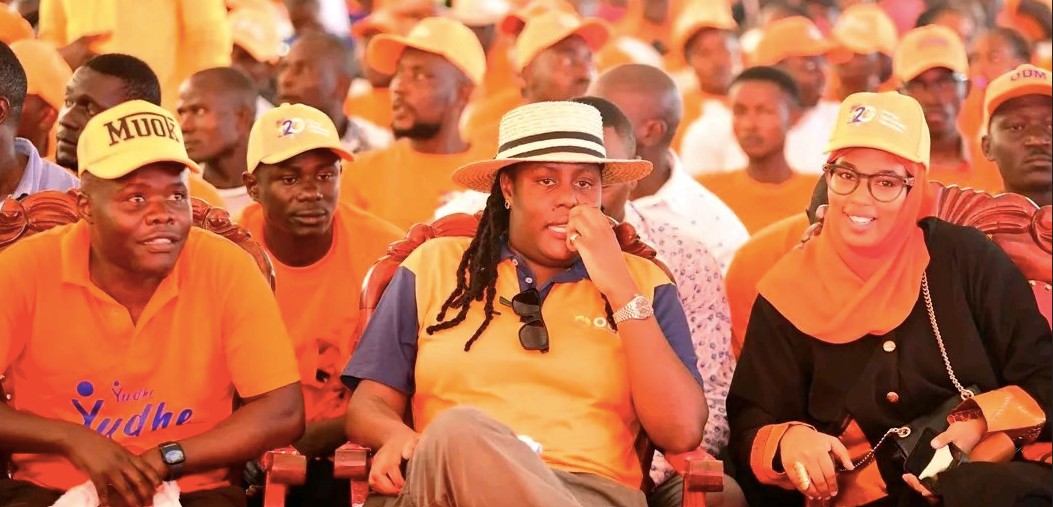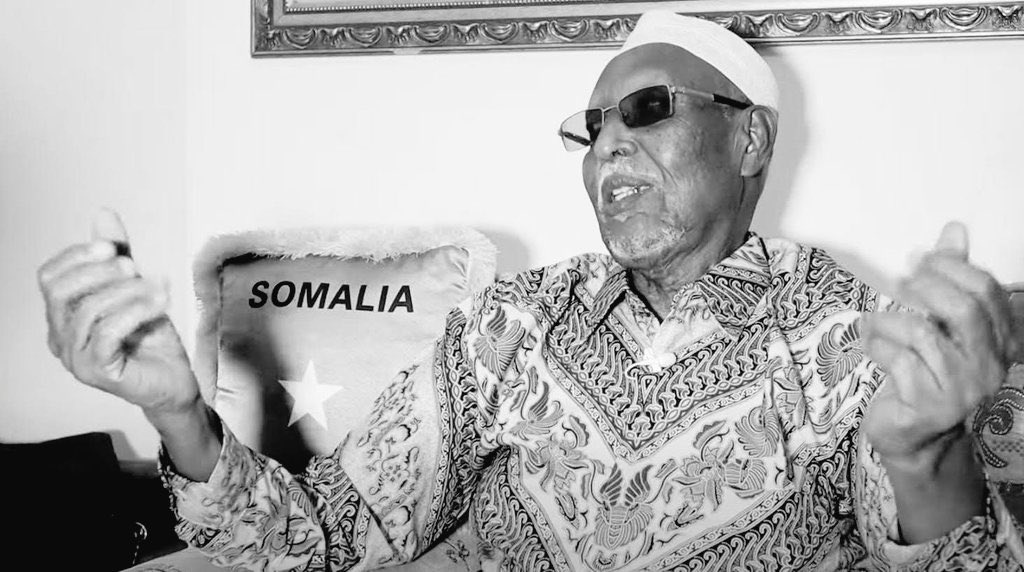Irony of police brutality in wake of renewed reforms in the service
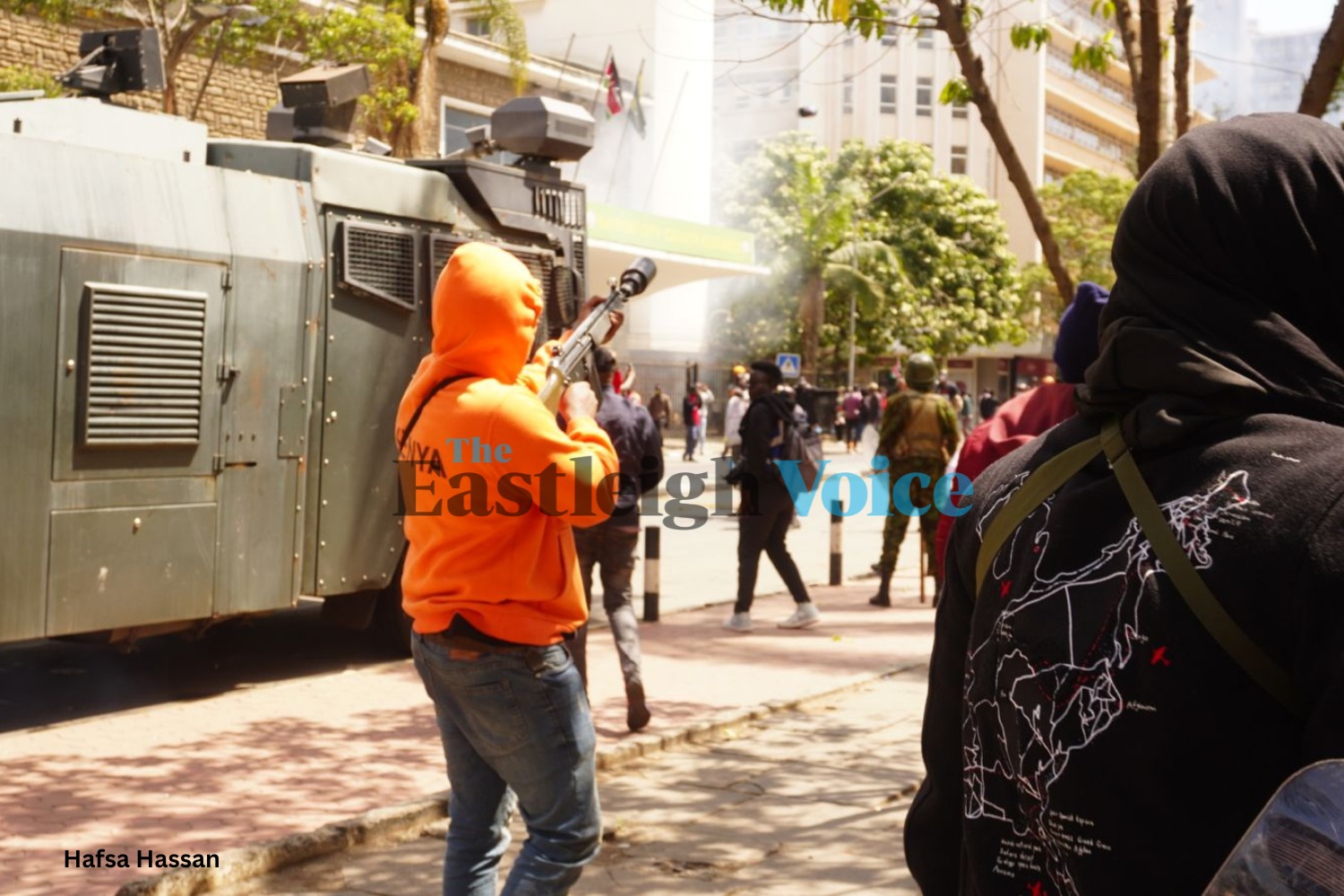
Already, KNHRC on Saturday declared that police are torturing some of the protesters who have been abducted for who it is seeking redress and accountability.
An uproar over police misconduct during the ongoing protests is a dark spot in the current attempts to reform the National police service through the implementation of former Chief Justice David Maraga's Taskforce reforms.
As late as June this year, efforts to implement the reforms were a priority for the Ministry of Interior when it announced that it would require Sh108 billion to implement 177 recommendations amongst them, a proposal to strengthen the police accountability mechanisms including the Independent Policing and Oversight Authority (IPOA) and the Internal Affairs Unit (IAU) on who the task to probe last week and this week's police brutality falls.
With the police seemingly taking a hard stance on protesters, as shown by the rising images of policemen caught on camera brutalising Kenyans, questions are emerging on whether the Taskforce's reforms were understood by the service which in recent months has been engaged in multiple fora analysing its recommendations and establishing action points to help improve police welfare and officers' relations with the public.
Already, the Kenya National Human Rights Commission (KNHRC) on Saturday declared that police are torturing some of the protesters who have been abducted for who it is seeking redress and accountability.
"Despite Kenya having a Prevention of Torture Act (POTA), KNHRC noted that some actions by security agencies amounted to torture. This takes back the gains we were celebrating this week as we marked the International Day in support of victims of torture on June 26," the commission said in a post on X on Saturday.
At the same time, on Saturday, 20 members of the Police Reforms Working Group-Kenya (PRWG-K) released their data on death and abductions during the ongoing anti-Finance Bill, 2024 protests.
"So far, we have documented 23 deaths, 34 enforced disappearances/abductions, and 271 injuries. In addition to being against international human rights instruments, these acts subvert democratic ideals and the rule of law," the organisations said in a joint statement.
Fatal shooting of protesters
On Wednesday this week, IPOA said its monitoring teams had observed and documented fatal shooting of protesters in Nairobi and other parts of the country, instances of excessive force by police officers against civilians, reports of abductions, arbitrary arrests, and armed police officers dressed in civilian clothes undertaking public order management including arrests and operating firearms without prominently displaying their badges in their outer garment as should be, in compliance with Chapter 43 of the National Police Service Standing Orders.
However, increased police brutality on protesters on Tuesday and Thursday this week pushed the PRWG-K to on Saturday nudge IPOA to move with speed and issue an update on its probes within seven days.
On its part, the IAU is yet to announce whether it's probing any of the officers caught on camera committing brutality and whether complaints have been filed at the unit.
The unit recently suffered abrupt changes to its composition and leadership following the sudden transfer of its director and multiple detectives in what analysts see as a plot to weaken it.
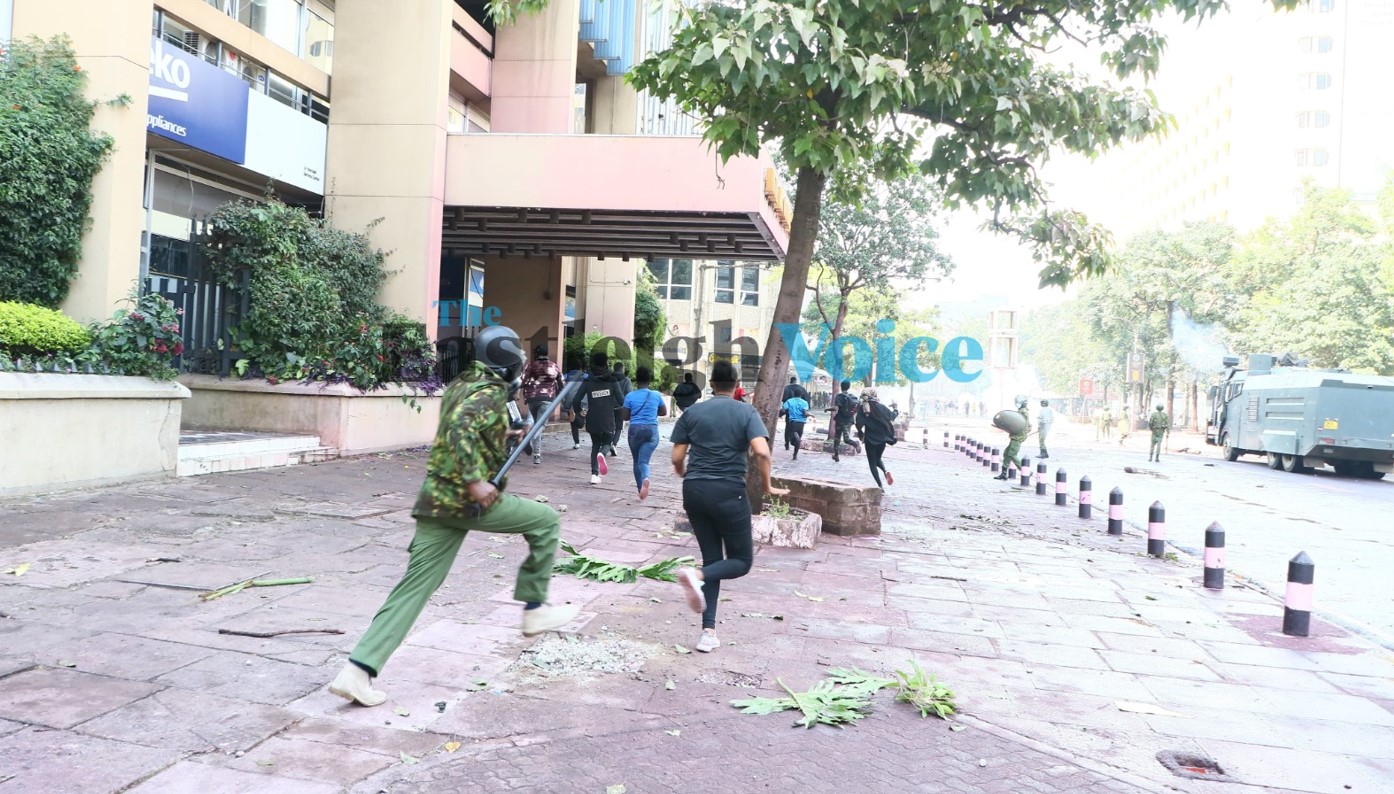 A police officer pursues protesters outside the Supreme Court in Nairobi on June 25, 2024, during demonstrations against the Finance Bill. (Photo: Justine Ondieki/EV)
A police officer pursues protesters outside the Supreme Court in Nairobi on June 25, 2024, during demonstrations against the Finance Bill. (Photo: Justine Ondieki/EV)
The changes are contrary to the task force recommendation that the Director IAU be appointed after a competitive recruitment process run by the National Police Service Commission and must enjoy the security of tenure.
"The practice now is to leave it to the IG to decide who would occupy the office and for how long," the task force noted.
Other Topics To Read
When the task force was collecting views from across the country, both the police and the public voiced their concerns on whether the report's recommendations would end up unimplemented like past reforms, a puzzle that the former CJ sought to address, noting that transformation of policing services is a challenge in any country due to expected resistance to change within and without the institution.
"The task force has noted that pertinent and very practical recommendations made by the Mutonyi committee and the Ransley task force were either not given attention or partially implemented. The reforms envisaged by the task force are unlikely to succeed unless there is political commitment to see them through. That commitment and oversight should come from the executive," the task force notes in its preliminary report.
Breaking law
For a long time, the service has been accused of being brutal to civilians, failing to implement reforms from previous task forces, and failing to align with the 2010 Constitution that remodelled it from a force to a service, an issue that is now worsened by the brutality meted upon protesters this past two weeks.
A few months after he took oath of office, President William Ruto promised that his regime would not oversee a rogue service responsible for the killing and maiming of innocent Kenyans as he witnessed with the abduction of Zulfiqar Ahmad Khan and Mohammed Zaid Sami Kidwai from India, Information Technology experts who had been brought to the country by the ruling Party-United Democratic Alliance (UDA) to bolster its technical team ahead of the 2022 presidential elections.
The two and their taxi driver Nicodemus Mwania Mwange were abducted, and their bodies dumped at the Aberdare National Park in Nyeri County.
The revelations led to the disbandment of the Special Service Unit (SSU) of the Directorate of Criminal Investigations (DCI) and later the appointment of the task force's members to spearhead reforms within the service.
The Maraga team submitted its report to him in November last year and he directed that the recommendations be implemented in full.
An interagency team leading the implementation process has since identified four key areas of reforms including; leadership in the three services; oversight and accountability; institutional capacity development and human resource management and development, as well as operational preparedness and logistical capability.
Overall, the reforms will be implemented in four years 2024 to 2028 in line with the strategic framework guiding the process.
Top Stories Today
